The truth about A levels Universities all over the world accept A Levels alongside the IB Diploma, as they do other similar qualifications. When parents are constantly being given contradictory information about these qualifications, however, then it is no wonder that some of you are worried about A levels and how they might impact on your child’s future.
Universities all over the world accept A Levels alongside the IB Diploma, as they do other similar qualifications. When parents are constantly being given contradictory information about these qualifications, however, then it is no wonder that some of you are worried about A levels and how they might impact on your child’s future.

A Levels require students to normally study four subjects at AS (advanced subsidiary) levek in the first year, reducing to three at A2 level in the second year. Some students and their parents want to take extra subjects, up to five or six, but this is unnecessary, even for the very top universities. Normally, the subjects are related in some way: for perhaps all languages and arts subjects for studying an arts-based university course, or sciences and maths for students wanting to get into medicine or engineering.
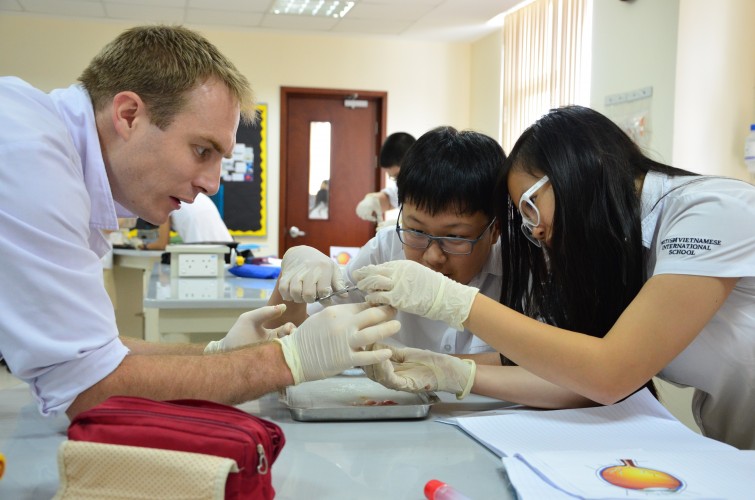
With subjects only normally taught for around five hours a week each, there is sometimes a fear that students will enjoy a lot of ‘free’ time in their working week. Any student not approaching all of their subjects with diligence and independent study is doing themselves no favours, however. Not for nothing are they known worldwide as the ‘Gold Standard’ qualification. Lots of people pass A levels, but wider reading and additional, independent research separates the wheat from the chaff. It is often how students use this ‘free’ time that is the deciding factor.
One of the main advantages of A Levels is that they allow students to study the subjects they are passionate about and want to pursue at university in much more detail.. This approach will not prevent a student from securing a place at university in a subject they have not studied – for example, economics, law or politics – but it might be easier if they already have a good grounding in that subject.
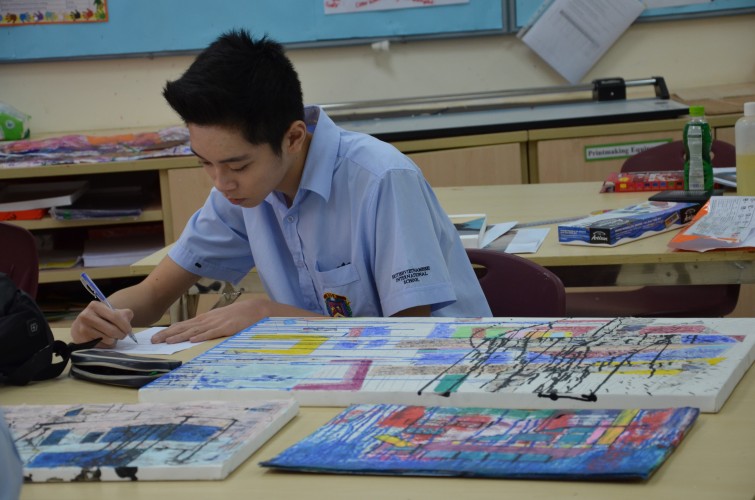
Although the standard of IB is comparable, and students study more subjects, this also means that is can be a little too “loaded” and inflexible. It is designed on the philosophy of a broad curriculum where students must do all kinds of things, but as a result it does not allow a student to focus only on subjects of interest. In the IB you cannot avoid studying literature or a language and everyone must take mathematics (though there are different levels) and at least one science subject. However, despite this range, an IB student cannot take chemistry, biology and physics at the same time because they belong to two groups and you cannot take three subjects from two groups! A levels, in contrast, place no restriction on the subjects one chooses other than the limitations of the individual school and its timetable. At BVIS, for example, students could, if they so wished, study A levels in all three sciences, plus a fourth in maths in their first year.
Some people in fact see this as the fundamental weakness of the IB: a poor grade in a subject that a student is not actually very interested in could cost him or her a place at university. The statistics bear this out: for A-level applicants, there is an 81 per cent success rate in securing a place at their first or second choice university, but for IB it is only 69 per cent. (The Telegraphhttp://www.telegraph.co.uk/education/secondaryeducation/8881037/How-to-choose-between-A-levels-and-IB.html)
Much of the extra subject time given to IB students is for their community project and independent extended essay. At BVIS, we expect all of our sixth form students to be involved in some form of business enterprise, linked to a charity. In addition, we run leadership training, a prefect programme, and give opportunities for students to mentor and coach younger students in the school community. These opportunities are invaluable and students know that without immersing themselves in life beyond the four subjects in which they are specialising, their CVs will begin to look rather sparse…
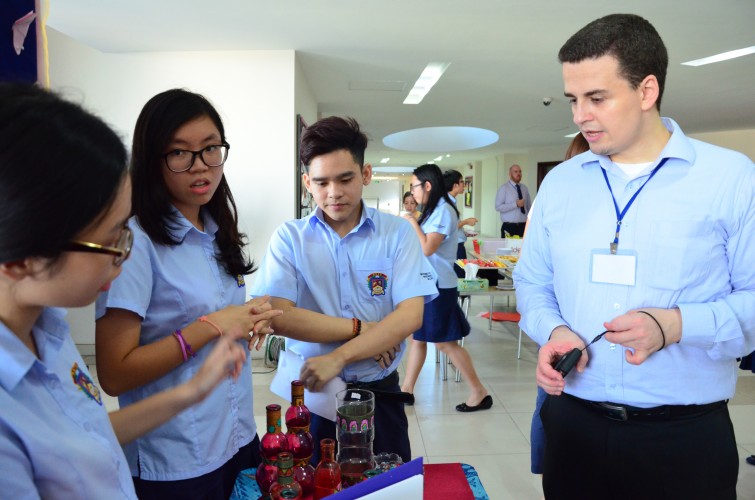
Another main advantage of the A Level programme is that it is delivered in modules, which means students study four or six units in each subject over the two-year course at various times, and can resit any modules in which they do not achieve the expected grade. This helps them to manage their own learning and thus their university applications much better since they match their abilities against the national assessment in England, and can apply to the appropriate level of university or resit to improve their grades. A Level pass grades range from A*-E (yes that’s right, an E is a pass!) but students should be aware that many top universities only accept the top A*-C grades. There is an equivalent grade approach in the USA for A level passes, with an A or B in the UK equalling an A in the US, a C or D equivalent to a B and an E being regarded as a C in the USA.
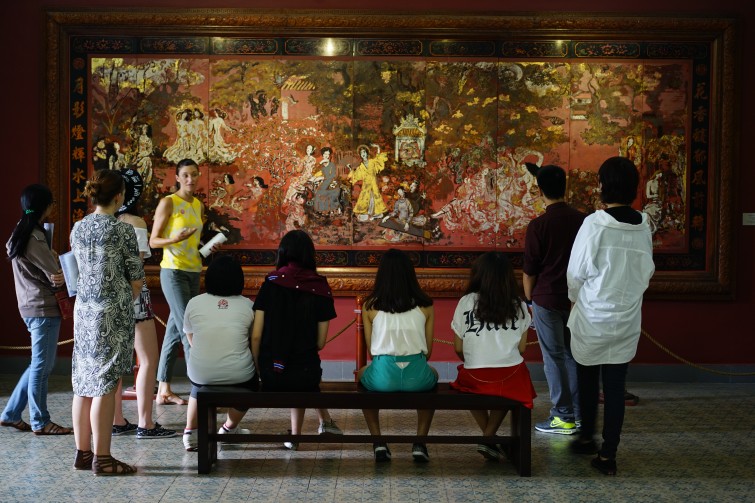
The Fulbright Commission recommends at least GCSEs at grade C or above in academic subjects, and 2 or 3 A levels. However, unlike the UK system, acceptance at a US university is not conditional on the A level results – especially since A level exams are not even taken until several months after US letter of acceptance go out. Instead, American universities will generally ask for GCSEs and AS level results, along with an indication of academic progress in the final (A2) year. A levels can also count for credits in the Freshman year of an American university, with one A level roughly equal to three undergraduate credits.
Universities the world over accept both qualifications, including Oxford and Cambridge in te UK, and Harvard and Yale in the USA. Julia Paolitto, University of Oxford admissions spokesperson, says: “We do not weigh either of these qualifications as ‘better’ since both are eligible for entry, and all applications are considered carefully.” What these top universities are looking for anyway is not so much top grades – all of their applicants have these – but something that makes you stand out from the crowd. The potential for greatness in a field, be it maths, literature, leadership or even show business! (See how many top actors and actresses are Oxbridge or Ivy League-educated – Google Monty Python for instance!) To some degree, then, it is a matter of personal choice; and it is also down to what best suits your child.
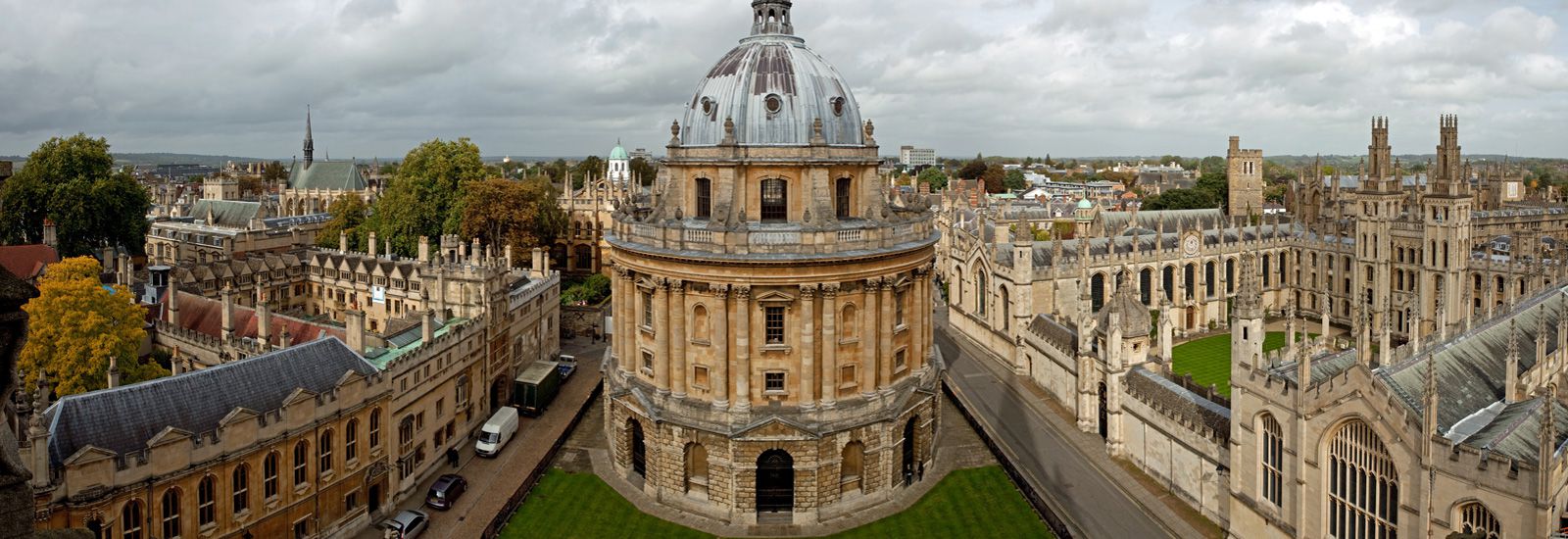
What we do know is that students at BVIS achieve incredibly highly and go on to some top universities, with some excellent grades…at A level.












